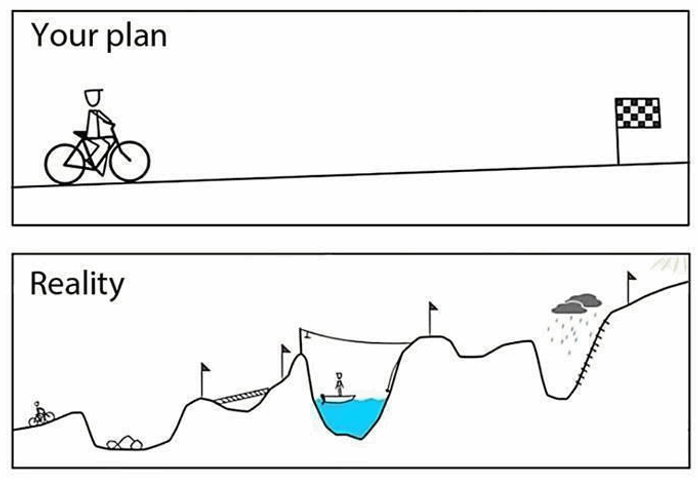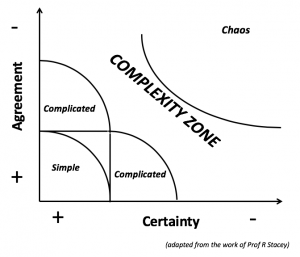Was ‘lockdown’ the easier bit?

In recent weeks we’ve been involved in many lively discussions about what lies ahead. On a personal level lockdown has been really challenging for most; but in crisis management terms what we’ve all just been through was probably the easy bit. Indeed ‘lockdown’ was arguably more of an operational inconvenience than a crisis; perhaps the crisis is only just beginning.
It’s a simple and imperfect analogy, but let’s liken this pandemic to a fire in the office building (in the days when some people worked in offices). When the fire broke out someone (eventually) hit the fire alarm and once we decided this was for real we all obediently trotted into the car park, following straightforward instructions. Once we were all accounted for and the casualties were taken to hospital, some of us thought the crisis was over when in fact it was just beginning. Stood in the car park we began to wonder how to get home, what about work tomorrow, how will we service our customers, what about the next few weeks, whats the priority, how do we keep our people safe and continue operations, are our jobs safe, what about our reputation…and so on. As we began to leave the car park the uncertainty and complexity that are the DNA of crisis, were just emerging.
And so it is with this pandemic – after being told what to do and following some straightforward ‘do this, don’t do that’ black and white instructions, businesses are now taking tentative next steps out of the car park and into a grey and foggy landscape. So, in crisis management terms, for most businesses it was a relatively simple problem in March – do what you’re told and work around it. Now faced with only shades of grey, uncertainty, increasingly ‘wicked’ problems and with the responsibility for the associated decisions resting with you (not a higher authority) the real challenges are just beginning. For some, the uncertainty can be crippling. But in this new landscape opportunities await. So whats the advice?
- Firstly, this journey towards recovery requires us all, personally and professionally, to inhabit the ‘complexity zone’ as the default setting. Every business is vulnerable to some extent; most will be managing ‘wicked’ problems. Accept it. Navigate through this grey and messy landscape confidently. This requires resilience.
- Avoid reaching (or worse still, waiting) for certainty. Accept that you cant know with any certainty exactly whats coming nor the outcomes of all your decisions. But you can apply your critical thinking to map some outlines. You can clarify your priorities. You can use agile decision making to alter course and find a different route to the same goal.
- As ever, this journey is mostly about people. Your staff will be ready to lend a shoulder to the wheel if you are genuinely connected. Your customers will notice how you treat your staff and how they experience your business. Coronavirus has fine tuned our receptors in all these areas. Kindness, empathy, understanding, balance, authenticity and realism matter now more than ever. Communicate.
- Finally, be ready. Properly ready. Develop a model of operations (crisis or otherwise) that allows this joined up thinking and decision making to permeate your new normal. Get your teams ‘crisis ready’. Learn from what has happened so far. Always keep improving.
None of this is easy. The ‘winners’ will be accepting of the uncertainty, not stunned by it. They will be ‘match fit’ for inhabiting the complexity zone. They will bind their teams together and engage their customers as never before. This coronavirus, human behaviours, economics and geopolitics have many more surprises for 2020 – 21. Those that are once again ready to respond, will gain the advantage.
